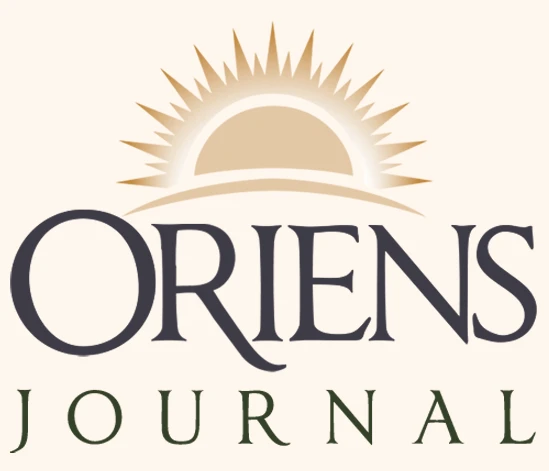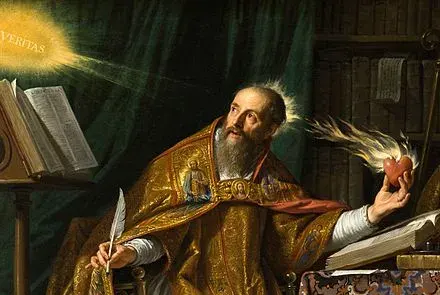The Oriens Foundation is dedicated to the idea that Western Culture can only be advanced when Tradition is embraced. In order to achieve this, we rely on the intercession of our two patron saints.
St. Augustine

Augustine of Hippo (13 November 354 – 28 August 430), was a theologian and philosopher. His writings deeply influenced the development of Western philosophy and Western Christianity, and he is viewed as one of the most important Church Fathers of the Latin Church in the Patristic Period.
According to his contemporary, Jerome of Stridon, Augustine “established anew the ancient Faith”. In his youth, he was drawn to the Manichaean heresy. Later on, he discovered the writings of Plato and Neoplatonism. He converted to Christianity and was baptised by St. Ambrose in Milan in 386. The importance of St. Augustine to Oriens, is that he created the intellectual framework for the establishment and flourishing of the Christian West at a time when the Roman Empire was crumbling.
Augustine is as timely as much as he is powerful. His experience of a collapsing world and a disintegrating culture offer precious insights into how the culture might be renewed from within. We rely on Augustine to show us how to plant the seeds of Western renewal.
St Gregory the Great

Pope Gregory I, was the 64th Bishop of Rome from 3 September 590 to his death in 604. He is known for instituting the first recorded large-scale mission from Rome, the Gregorian mission, to convert the then largely pagan Anglo-Saxons to Christianity. He is the second of the three Popes listed in the Annuario Pontificio with the title “the Great”.
A Roman senator’s son and himself the prefect of Rome at 30, Gregory lived in a monastery that he established on his family estate before becoming a papal ambassador and then pope. Although he was the first pope from a monastic background, his prior political experiences helped him to be a talented administrator. During his papacy, his administration greatly surpassed that of the emperors in improving the welfare of the people of Rome. The realignment of barbarian allegiance to Rome from their Arian Christian alliances shaped medieval Europe. Throughout the Middle Ages, he was known as “the Father of Christian Worship” because of his exceptional efforts in revising the Roman worship of his day.
His importance to the Oriens Foundation stretches across many areas. The most important of which was his ability to marry Western Culture to the Christian religion. He provided the intellectual and cultural architecture that permitted the religion of the masses to form the culture of the people. His efforts demonstrated how Western Civilisation was part of the Church’s remedy for man’s sinful nature.

